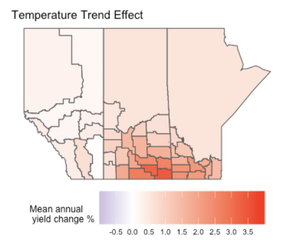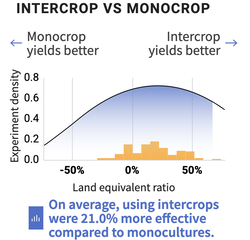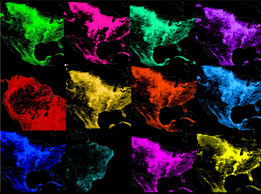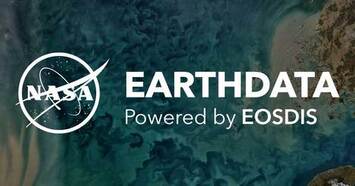Projects
|
Humans have transformed the face of Planet Earth for growing crops and grazing cattle. While these land use practices provide much-needed benefits -- food and fiber for a growing population, as well as livelihoods for farmers -- in the long term, they degrade the environment, representing an inherent trade-off.
Land use results in the loss of biodiversity, greenhouse gas emissions, regional and global climate changes, alteration of freshwater flow and quality, and spread of diseases. Our research group is broadly interested in the question of how to best manage land around the planet in order to maintain the services valuable to humanity while minimizing environmental degradation. Here are the some of the questions we ponder. How are humans using land around the world, and how is it changing? How can we feed 10 billion people while reducing the environmental footprint of agriculture? Can organic farming be part of this solution? Is it better to intensify farming and "spare land for nature", or is it better to have low-intensity agriculture covering a greater extent of land? How are crop yields changing, and how might climate change affect future crop yields? What can we learn about sustainable agricultural systems from studying the 4000-year old homegardens (agroforestry systems) in Kerala, southern India? How does urban expansion influence land change in different parts of the world? Below are some of the projects that have come out of our group trying to answer these and other questions. |
Climate-smart agriculture in Canadian Prairies
|
FarmGeek |
Colours of Food Security |
SEDAC
|
GeoSHARE
|






